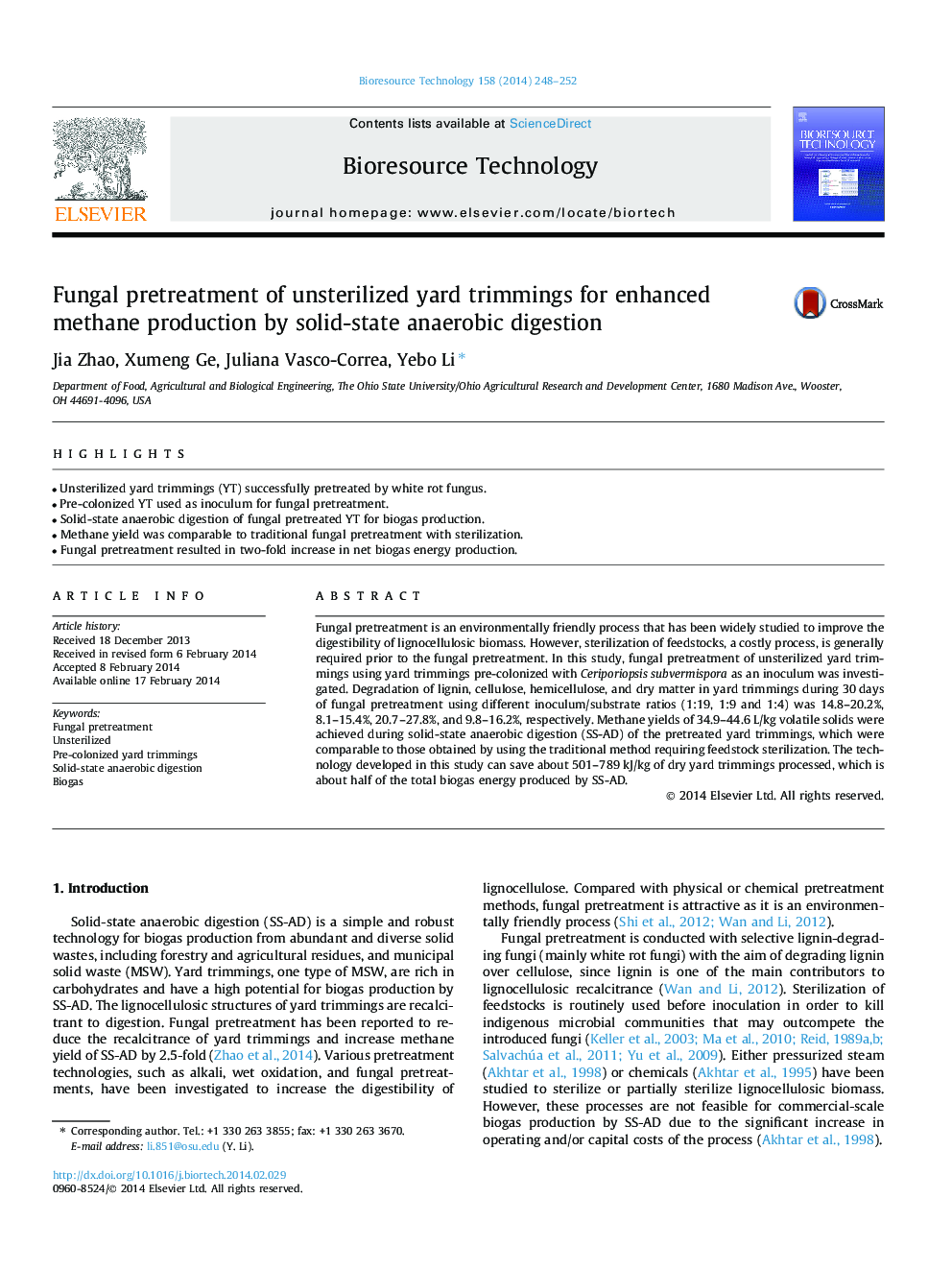| Article ID | Journal | Published Year | Pages | File Type |
|---|---|---|---|---|
| 680796 | Bioresource Technology | 2014 | 5 Pages |
•Unsterilized yard trimmings (YT) successfully pretreated by white rot fungus.•Pre-colonized YT used as inoculum for fungal pretreatment.•Solid-state anaerobic digestion of fungal pretreated YT for biogas production.•Methane yield was comparable to traditional fungal pretreatment with sterilization.•Fungal pretreatment resulted in two-fold increase in net biogas energy production.
Fungal pretreatment is an environmentally friendly process that has been widely studied to improve the digestibility of lignocellulosic biomass. However, sterilization of feedstocks, a costly process, is generally required prior to the fungal pretreatment. In this study, fungal pretreatment of unsterilized yard trimmings using yard trimmings pre-colonized with Ceriporiopsis subvermispora as an inoculum was investigated. Degradation of lignin, cellulose, hemicellulose, and dry matter in yard trimmings during 30 days of fungal pretreatment using different inoculum/substrate ratios (1:19, 1:9 and 1:4) was 14.8–20.2%, 8.1–15.4%, 20.7–27.8%, and 9.8–16.2%, respectively. Methane yields of 34.9–44.6 L/kg volatile solids were achieved during solid-state anaerobic digestion (SS-AD) of the pretreated yard trimmings, which were comparable to those obtained by using the traditional method requiring feedstock sterilization. The technology developed in this study can save about 501–789 kJ/kg of dry yard trimmings processed, which is about half of the total biogas energy produced by SS-AD.
